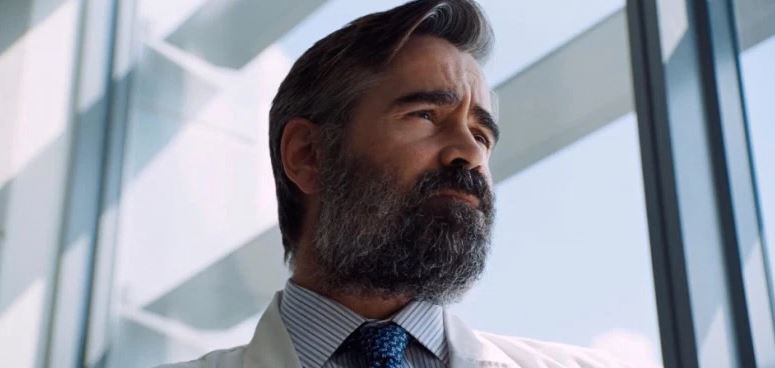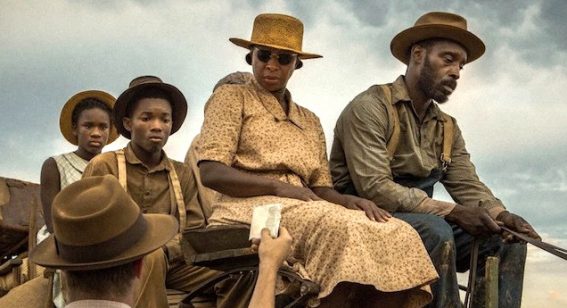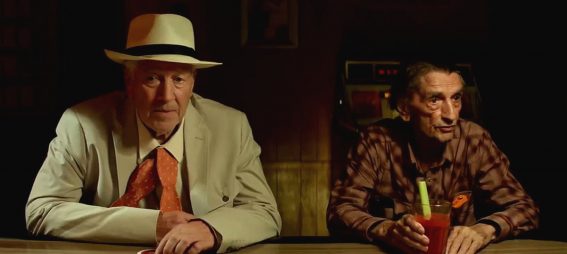
Enough with heavy-handed metaphors: The Killing of a Sacred Deer and the murdering of subtlety


Will somebody please whack me on the head with a bible, or a large book about Greek mythology? Paying a person to do this would probably be cheaper – and certainly more time efficient – than sitting through another heavy-handed, metaphor-clogged drama, populated by characters who are enfeebled because they exist purely in service of a Bigger Message.
Darren Aronofsky’s medieval flailing of Jennifer Lawrence in mother!, under the pretense of a retelling of the Book of Genesis, was bad enough: as intellectually nourishing as a crucifixion. Now, with The Killing of a Sacred Deer, it’s Greek auteur Yorgos Lanthimos’ turn to flagellate famous faces, with Colin Farrell and Nicole Kidman playing mother and father of a cursed middle class family.
Things start to go very bad for the Murphys after Steven (Farrell), a cardiovascular surgeon, KBs an advance from a widowed mother played by Alicia Silverstone. Her son is creepy 14-year-old Martin (Barry Keoghan), whose polite but seething manner suggests a quiet, calculated wrath – as if Damien from The Omen were taught some manners then released from the psych ward. Watching Steven and Martin hang out, the latter pestering the surgeon (a recovered alcoholic) to spend more time with him, one naturally wonders what the nature of their relationship is.
We know there is something rigid and ritualised about their private lives. In Steven’s case this is illustrated during a moment when Anna (Kidman), in her underwear, drapes herself across their bed, on her husband’s instruction – as if she were a sex doll assuming a pre-programmed position. The director cuts away from the scene before revealing much more about their frosty, unorthodox sexual relations.
Steven seems to be the kind of guy who would prefer to rear their two children, Kim (Raffey Cassidy) and Bob (Sunny Suljic) in an isolated rural location, with acquiescent wife at arm’s reach – like the father in Lanthimos’ 2009 drama Dogtooth (also, like Sacred Deer, co-written by the director and Efthymis Filippou). I find Lanthimos’ work as cleansing as a pint of bleach, though I liked his previous, more playful film The Lobster, starring Farrell as a man destined to be turned into a crustacean if he fails to find a romantic partner.
Thimios Bakatakis’ camerawork in The Killing of a Sacred Deer moves to a displacing rhythm, at times more concerned with taking us out of a moment than into it. When one character mysteriously loses the ability to walk and collapses, Bakatakis shoots in the classical way to impart powerlessness: a high angle shot from above. And when Kim sings in front of an oak tree, the cinematographer’s gliding frame slowly pulls away, as if to say: be wary of these people.
It is Lanthimos, however, who is deserving of the most suspicion. When a character breaks down, or suffers an unfortunate turn of events, who cares? As in Aronofsky’s mother! – another film with a mean-spirited, misanthropic glaze stuck to it, and no real pay-off, emotional or otherwise – these people are ciphers: chalk outlines for the metaphor to fill in. In The Killing of a Sacred Deer, this pertains to the story of Iphigenia, involving a father making a sacrifice to appease the gods. The film is more likely to resonate as a simple, cautionary tale about a person haunted by their conscience.
Critics and audiences clutching for meaning deploy words like “tragicomic” or “the human condition” to taper over the hollowness of Lanthimos’ vapid mind games. The characters struggle for agency, and the story even more so. Labouring the metaphor and its mythological origins, as if this alone imbues the drama with credibility, the narrative cannot meaningfully exist on its own terms. Lanthimos points us in another direction, to some ancient, myth-making horizon – anywhere other than his own work.
The Killing of a Sacred Deer is the latest in a recent run of films to smother the medium with the message, drowning out interesting plotting and characterisation in the process (see also: Suburbicon, Detroit and as mentioned above, mother!). Mood, and a handful of good performances, is all it has going for it. For some viewers, this will be enough to provide an intellectual aphrodisiac. For me the experience was nasty and pointless. The only heart you’ll get is Lanthimos’ gratuitous opening shot, of a real one throbbing and pumping on the operating table.
More
See All



